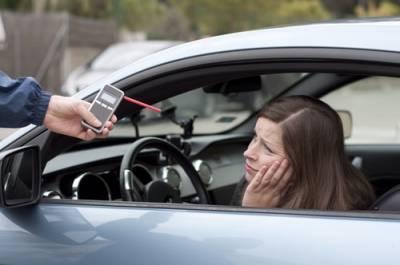Recent Blog Posts
Cyberbullying in Connecticut
 There have been bullies as long as there have been schools. Many states across the nation are passing zero-tolerance policies to try and address the problem of bullying at school. With the dawn of the technological age and explosion of social media, a new style of bullying is emerging with the legal community struggling to keep up.
There have been bullies as long as there have been schools. Many states across the nation are passing zero-tolerance policies to try and address the problem of bullying at school. With the dawn of the technological age and explosion of social media, a new style of bullying is emerging with the legal community struggling to keep up.
What Is Cyberbullying?
Cyberbullying, is when an individual uses a computer network to harass another person. Under Connecticut law, it is classified as a Class C misdemeanor if you use an electronic communication to:
- Cause someone or engage in conduct that causes someone to fear for his or her safety or the safety of a third person;
- Engage in an activity or conduct that causes the victim to suffer emotional distress;
- Threaten a victim or their family in a way that causes a reasonable apprehension of immediate or future bodily harm, sexual assault, or illegal confinement; and
Where Juvenile Law Meets Compassion
 There has been a sweeping legislative wave of criminal law reform taking place all over the nation. Prison populations across the country have exploded to untenable levels, absolutely eviscerating various state budgets and causing entire generations of otherwise productive individuals to become lifelong offenders. This problem is magnified in juvenile criminal law. In 2016, there were 496 juveniles sentenced to an order of detention. Many of those sentenced were sentenced for nonviolent offenses that would be charged with a misdemeanor if they were prosecuted in adult court.
There has been a sweeping legislative wave of criminal law reform taking place all over the nation. Prison populations across the country have exploded to untenable levels, absolutely eviscerating various state budgets and causing entire generations of otherwise productive individuals to become lifelong offenders. This problem is magnified in juvenile criminal law. In 2016, there were 496 juveniles sentenced to an order of detention. Many of those sentenced were sentenced for nonviolent offenses that would be charged with a misdemeanor if they were prosecuted in adult court.
Ending the School to Prison Pipeline
The school to prison pipeline is a phrase used to describe an increasing trend of students being subjected to criminalized discipline and winding up in the criminal justice system before they are even able to finish high school. Advocates of juvenile criminal justice reform have long argued that criminalized discipline is counterproductive to the best interest of our youth. Take for example the Deputy Director of the Connecticut Juvenile Justice Alliance, Lara Herscovitch, who argued, “We feel strongly that far too often arrests are used in place of regular student discipline.”
What Is White Collar Crime?
 White collar crime is a broad legal term that encompasses many different areas of criminal law. Generally, there are two major ways of defining what a white-collar crime is:
White collar crime is a broad legal term that encompasses many different areas of criminal law. Generally, there are two major ways of defining what a white-collar crime is:
- Crimes committed by individuals who come from affluent socioeconomic environments, or crimes committed by people who through the nature of their job have been put in positions of financial trust.
- Crimes committed involving an economic offense, often nonviolent, and usually incorporate a theft or fraud.
Are the Penalties for White Collar Crime More Severe?
That is a question for your Norwalk Connecticut white collar defense attorney. The penalty Is nearly entirely dependent on the crime in question. Most penalties carry a large monetary fine because of the nature of a white-collar offense. Types of white collar crimes include but are not limited to:
Is Decriminalization of Marijuana Enough?
 The debate over the legalization of marijuana is heating up in Connecticut. Lawmakers on both sides of the aisle argued at a legislative hearing that the legalization of recreational marijuana would effectively dismantle the illegal market for cannabis. Among other things argued, advocates of legalization laid out several benefits including:
The debate over the legalization of marijuana is heating up in Connecticut. Lawmakers on both sides of the aisle argued at a legislative hearing that the legalization of recreational marijuana would effectively dismantle the illegal market for cannabis. Among other things argued, advocates of legalization laid out several benefits including:
- Ending unnecessary arrests of people for possession of marijuana;
- Bring in millions of dollars in tax revenue to the state;
- Creation of a new job market; and
- Bolstering of tourism market.
Possession of small amounts of marijuana has already been decriminalized in Connecticut. Advocates of legalization say that not regulating marijuana is tantamount to subsidizing the illegal market that fosters violence and additional criminal behavior. David L. Nathan, a psychiatrist and faculty member at Rutgers Robert Wood Johnson Medical School, said, “I’ve seen too many cases of lives ruined by marijuana not by the drug itself, but by a justice system that chooses a sledgehammer to kill a weed.”
Potential Defenses to Drug Trafficking Charges
 News stories are limitless around the country about law enforcement cracking down on drug crimes. This crackdown goes all the way to the top with President Trump announcing his intentions to be “ruthless” in his determination to put an end to drug trafficking. The issue with so-called ruthless behavior is it results in hoards of innocent individuals facing false accusations of breaking the law. Federal, state, and local law enforcement utilize all of their resources building cases. Anyone accused should remember that charges do not mean a conviction and the government has the burden of proving guilt. When the circumstances were right, the following defenses have worked for defendants. Remember, these defenses are not for all circumstances and consulting an attorney is advisable to create a strategy for your unique situation.
News stories are limitless around the country about law enforcement cracking down on drug crimes. This crackdown goes all the way to the top with President Trump announcing his intentions to be “ruthless” in his determination to put an end to drug trafficking. The issue with so-called ruthless behavior is it results in hoards of innocent individuals facing false accusations of breaking the law. Federal, state, and local law enforcement utilize all of their resources building cases. Anyone accused should remember that charges do not mean a conviction and the government has the burden of proving guilt. When the circumstances were right, the following defenses have worked for defendants. Remember, these defenses are not for all circumstances and consulting an attorney is advisable to create a strategy for your unique situation.
A Case of Being at the Wrong Place at the Wrong Time.
Understanding the New “Yes Means Yes” Consent Rule on College Campuses
 Connecticut recently passed a sex consent law that changes the consent that a partner must give in order for the encounter to be considered consensual on college campuses. If a party claims that the sex act was not consensual, rape or sexual assault charges can be brought. The new law, which went into effect last year, requires both parties to consent by saying “yes” or other affirmative signal. It should be noted that this is only the standard for college campuses (both public and private) and not sexual assaults that are alleged to take place elsewhere in the state. This new standard is what will be used at college disciplinary hearings. It will not change what must be proven in a court of law.
Connecticut recently passed a sex consent law that changes the consent that a partner must give in order for the encounter to be considered consensual on college campuses. If a party claims that the sex act was not consensual, rape or sexual assault charges can be brought. The new law, which went into effect last year, requires both parties to consent by saying “yes” or other affirmative signal. It should be noted that this is only the standard for college campuses (both public and private) and not sexual assaults that are alleged to take place elsewhere in the state. This new standard is what will be used at college disciplinary hearings. It will not change what must be proven in a court of law.
The Old Standard
Formerly, sexual assault campaigns highlighted the phrase “no means no.” However, sexual assault advocates believed that requiring the victim to prove that he or she said no ends up blaming the victim for the assault. By requiring that parties give affirmative consent, advocates of the law say the victim’s behavior will become less of a focus.
What You Should Know about Your First DUI in Connecticut
 If you have recently gotten your first DUI in Connecticut, you likely have many questions and you need to act quickly in order to get the optimal results in your case. Depending on the facts of your case, it is usually helpful to retain a DUI attorney as soon as possible.
If you have recently gotten your first DUI in Connecticut, you likely have many questions and you need to act quickly in order to get the optimal results in your case. Depending on the facts of your case, it is usually helpful to retain a DUI attorney as soon as possible.
There are two different “cases” within a DUI charge. One is administrative where your driver’s license is at stake. The other is criminal, which will affect your criminal record. For most first offense DUIs, the charges are considered to be misdemeanors.
The Administrative Case
If you fail or refuse a chemical alcohol test, your license will be suspended for 45 days. Connecticut requires that an ignition interlock device (IID) be installed prior to license restoration in all cases. The IID will be required for the following periods of time, based on the circumstances of each case:
Connecticut Renews Efforts to Keep Offenders under 21 in Juvenile Court
 Gov. Daniel Malloy has proposed a plan that would raise the age for young offenders being prosecuted in adult court. Under the proposal, those tried in adult court would have to be 21 years old.
Gov. Daniel Malloy has proposed a plan that would raise the age for young offenders being prosecuted in adult court. Under the proposal, those tried in adult court would have to be 21 years old.
The proposal would not include those charged with serious offenses such as rape, assault with a firearm, and murder. Currently, those 18 years old and over are tried in adult court.
Gov. Malloy presented this proposal in 2016, but the legislature did not act on it. However, there are signs that this year, it may fare better. If this plan is adopted, Connecticut would be the first state to raise the age above 18 for most juvenile offenses.
A ‘Cutting Edge’ Proposal
This idea comes from Harvard University’s Kennedy School of Government, which has outlined a step-by-step implementation plan. “There’s no doubt this is a cutting-edge proposal,” study author Lael Chester told the Juvenile Justice Information Exchange.
Is Teen Sexting a Crime?
 Sexting is a newer spin on the age-old desire of adults and teenager alike to express themselves sexually. Regardless of potential personal objections, the act of sending, creating, or posting suggestive images or video to various outlets such as cell phones, emails, and internet have various draws for consenting individuals of all ages. Technologically savvy adults over the age of 50 are even getting into the act to “spice up” their marriages. However, for minors, the act is closely related to “child pornography” and as such, the repercussions are severe.
Sexting is a newer spin on the age-old desire of adults and teenager alike to express themselves sexually. Regardless of potential personal objections, the act of sending, creating, or posting suggestive images or video to various outlets such as cell phones, emails, and internet have various draws for consenting individuals of all ages. Technologically savvy adults over the age of 50 are even getting into the act to “spice up” their marriages. However, for minors, the act is closely related to “child pornography” and as such, the repercussions are severe.
Consensual Child Pornography
As naive as the behavior may be, occasionally young teenagers “in love” have the bright idea to send each other nude photos of each other. While it is certainly frowned upon, with two consenting children of the same age bracket, the behavior should be considered an innocent mistake. Of course, it has been seen time and again when an ex in the relationship still maintains ownership of their copy of their ex and spreads them across school and to various social media outlets, causing further damage. However, even while they are in the relationship, the state of Connecticut says that so long as these individuals are between the ages of 13 and 15, a crime occurred on both the sending and receiving ends.
Juvenile Theft and How It Can Affect the Future
 Larceny is the intentional withholding of property belonging to someone else with no intention of giving it back. Convictions range from a misdemeanor to a felony based on the valued amount of the item or items taken. Many parents enter into panic mode upon hearing news that a child faces accusations of larceny. The reaction is justifiable as these charges can affect the entire future of the accused as such a stigma can severely stunt educational and employment opportunities. Your child’s future may be preserved if the appropriate action occurs quickly.
Larceny is the intentional withholding of property belonging to someone else with no intention of giving it back. Convictions range from a misdemeanor to a felony based on the valued amount of the item or items taken. Many parents enter into panic mode upon hearing news that a child faces accusations of larceny. The reaction is justifiable as these charges can affect the entire future of the accused as such a stigma can severely stunt educational and employment opportunities. Your child’s future may be preserved if the appropriate action occurs quickly.
Is a juvenile record sealed or expunged at 18?
Many mistakenly believe that all criminal history before the age of 18 is automatically sealed and not visible to potential schools and employers. If the case in question was dropped or dismissed, the record erases immediately. However, if there is a conviction, a petition must be completed to have the incident “erased.” Sealing and expungement is not an option in these cases, but erasing will prevent everyone outside of a courtroom from seeing the record.







